
ANI07300449 Joel Sartore
Of the two rainforest dragons in Australia, Boyd's forest dragon is the biggest with a body length of approx. 15cm and a tail twice the length of that! They have spiky protrusions, large cheek scales and a yellow dewlap. Active mainly through the day, you might find one hanging out on a tree trunk (head up, tail down), however herpetologists.
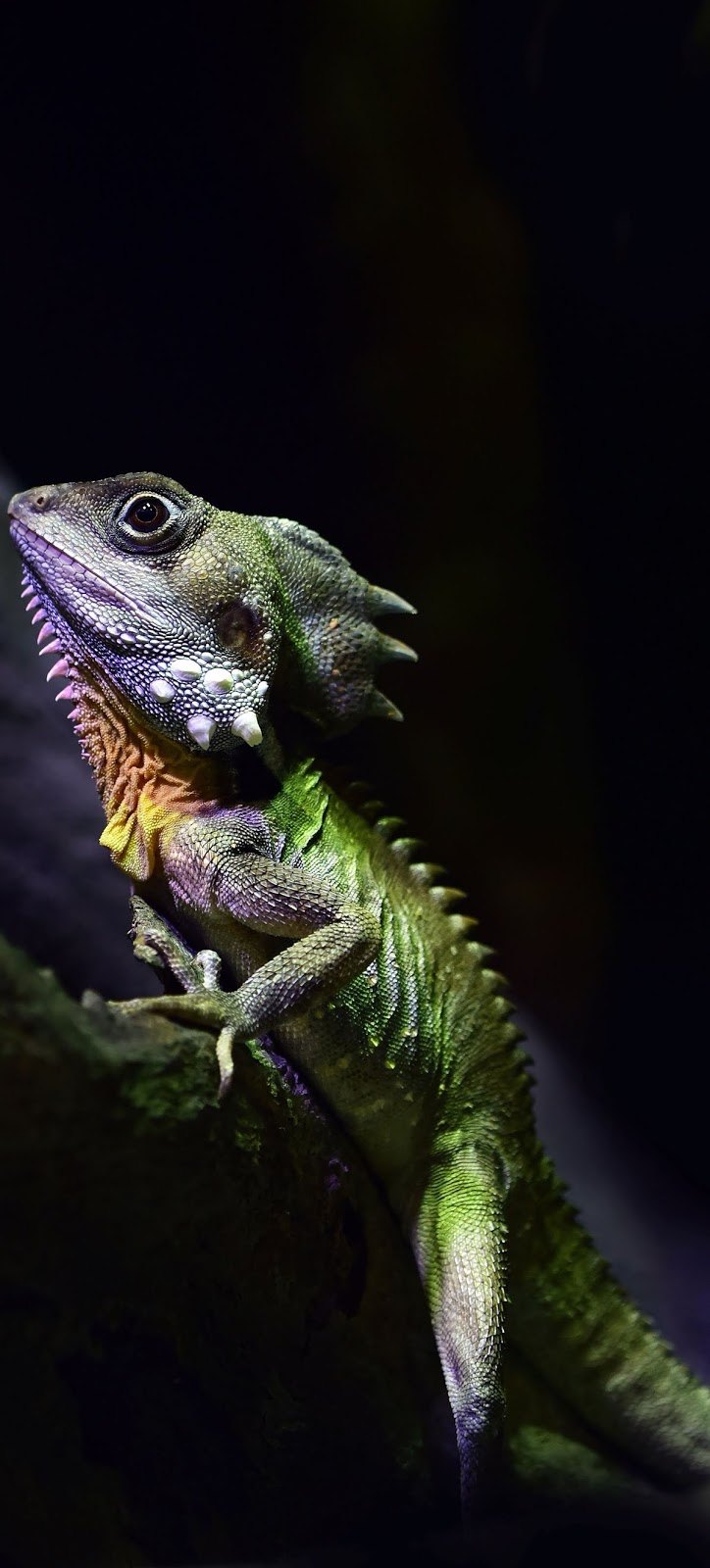
Picture of a boyd’s forest dragon About Wild Animals
Boyd's forest dragon (Lophosaurus boydii) is a species of arboreal lizard in the family Agamidae.The species is native to rainforests and their margins in the Wet Tropics region of northern Queensland, Australia. It is the larger of the two species of Lophosaurus found in Australia. Another species, the southern angle-headed dragon, L. spinipes, is found in southern Queensland and northern New.

Boyd's Forest Dragon closeup Cute reptiles, Reptiles and amphibians, Reptiles
REPTILE FACTS: Description Boyd's Forest Dragon is a lizard with large pointed scales on a crest behind the head. These reptiles spend much of their time perching on the side of tree trunks just one or two metres from the ground waiting to ambush prey

Enjoying the Mossman and all it's inhabitants on our early morning stroll. The Boyd's
Boyd's forest dragon (Lophosaurus boydii) is a species of arboreal lizard in the family Agamidae.The species is native to rainforests and their margins in the Wet Tropics region of northern Queensland, Australia.It is the larger of the two species of Lophosaurus found in Australia. Another species, the southern angle-headed dragon, L. spinipes, is found in southern Queensland and northern New.
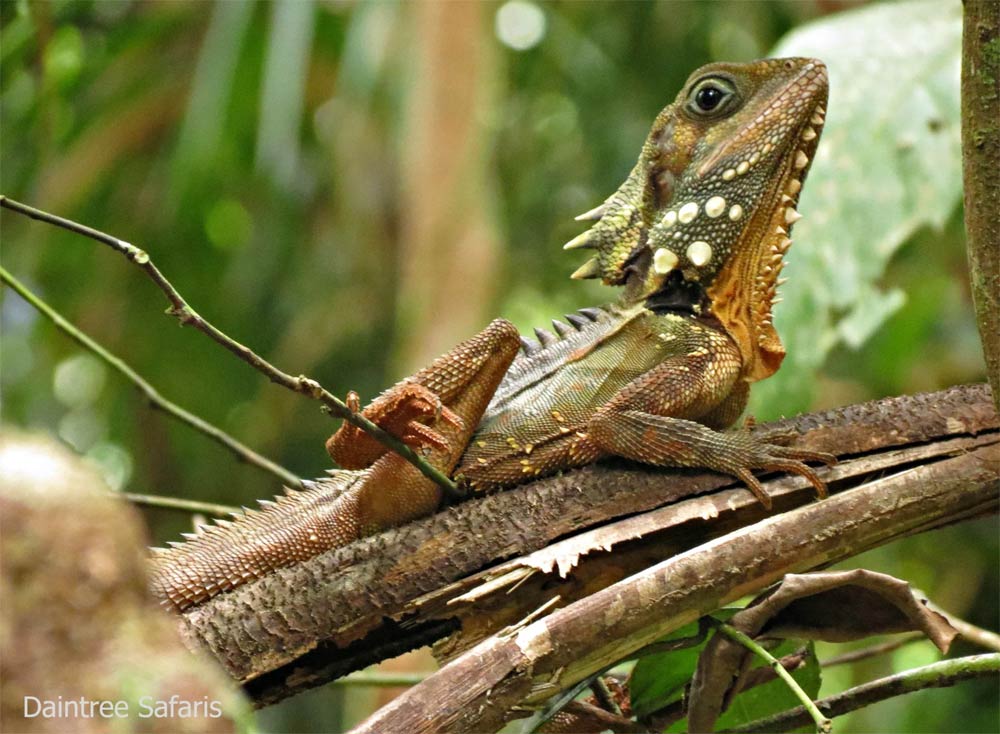
Boyd’s Forest Dragon breeding season in the Daintree Daintree Safaris
The Boyd's Forest Dragon Hypsilurus boydii formerly (Gonocephalus) is a true rain wood specialists.In fact it is to of the few reptiles that regulates its car thermal by thermoconforming (using the ambient temperature of the air plus surfaces it rests on, rather than by direct exposures to the sun).

Boyd’s Forest Dragon Jungle Tours
Boyd's Forest Dragon (Caresheet) In the past Boyd's forest dragons ( Hypsilurus boydii) have been considered difficult and fussy captive requiring specialist care. However, recent experience by a number of breeders have show this not to be the case provided some basic parameters are met. Like their southern relatives the angle-headed dragons.

Boyd’s Forest Dragon Jungle Tours
Boyd's forest dragon (Lophosaurus boydii, formerly Hypsilurus boydii) is a species of arboreal agamid lizard found in rainforests and their margins in the Wet Tropics region of northern Queensland, Australia.It is the larger of the two species of Lophosaurus found in Australia. The other species, the southern angle-headed dragon, L. spinipes, is found in southern Queensland and northern New.

Boyd's Forest Dragon Daintree Rainforest
A Boyd's forest dragon is only found in the rainforests of north eastern Queensland. The male has a home range of about 1000 square metres. Female ranges are slightly smaller. Home ranges of the same sexes do not overlap but larger male territories often contain one or more female territories. Movements within the territories vary with season.
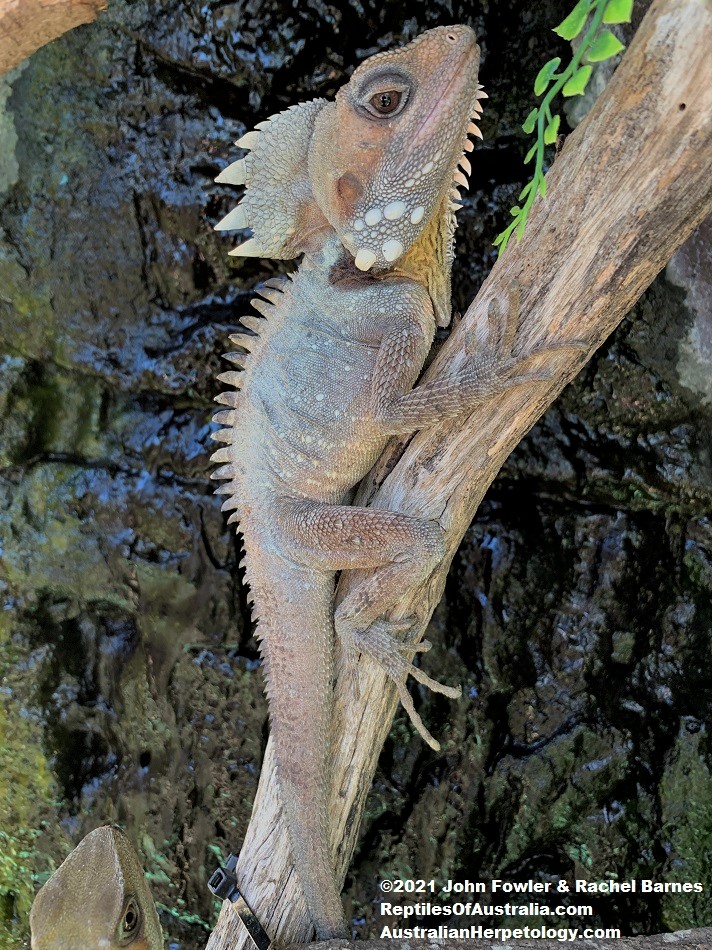
BOYD'S FOREST DRAGON Lophosaurus boydii
Known as Jalbil over these past two-thousand or more generations, but much more recently, 'Boyd's Forest Dragon (Hypsilurus boydii); this living dinosaur, a Jurassic relictual species, distinguishes itself amongst its reptilian fraternity by relinquishing the energy that is otherwise available from direct sunlight. Almost certainly the only diurnal reptile in the world that does this, its.
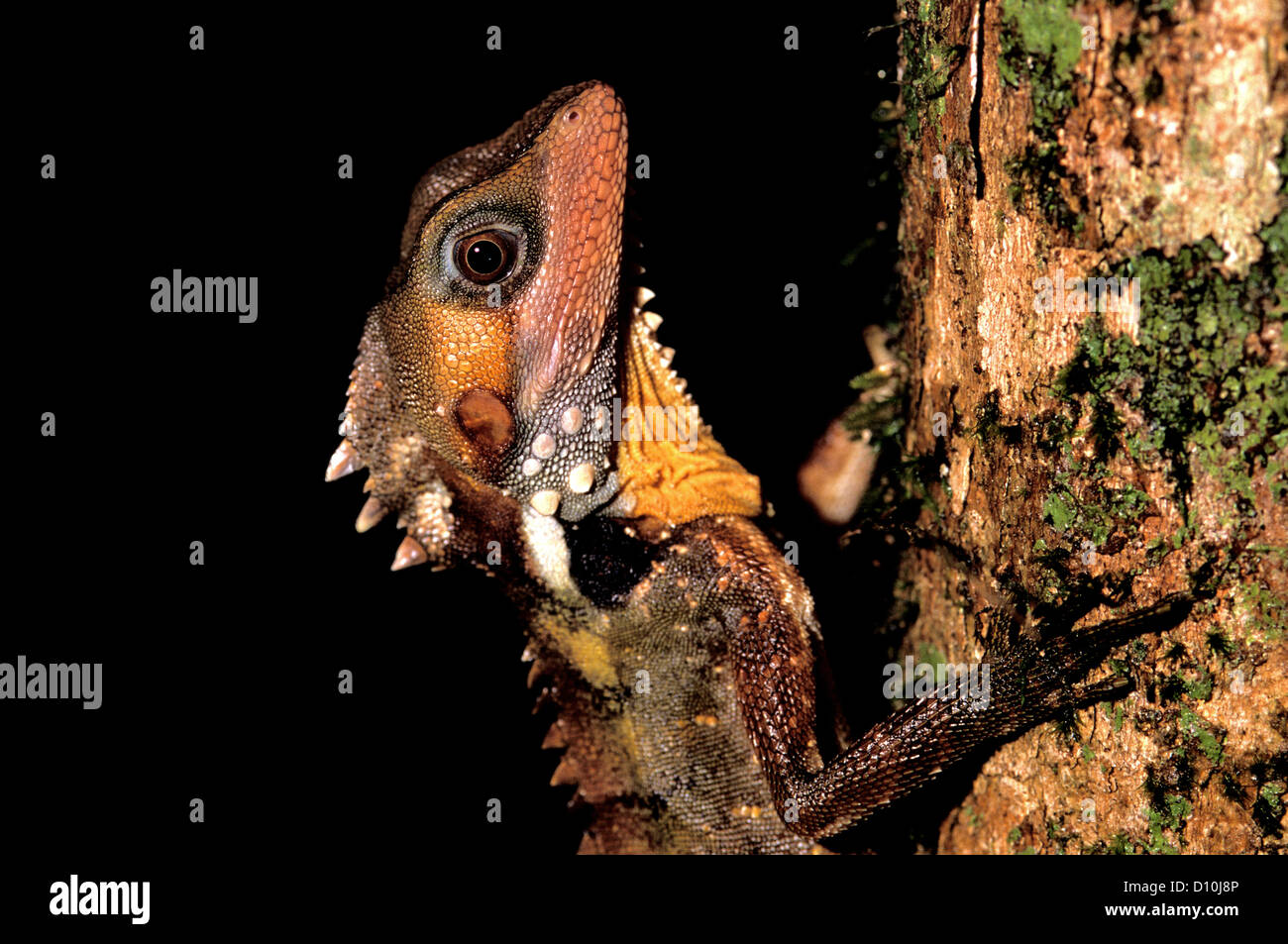
Boyd's Forest Dragon climbing a rainforest tree Stock Photo Alamy
I wonder if the lowland population bullies the upland lizards before they reach maturity. Boyd's Forest Dragon Fast Fact - Unlike most reptiles the Forest Dragon doesn't bask in the sun. Instead they let their body temperature just fluctuate with the temperatures. The exception to this is females that are carrying eggs.

Lophosaurus boydii (Boyd's Forest Dragon) Cute reptiles, Rare animals, Animals
Boyd's Forest Dragon: Unveiling the Enigmatic Lizard of the Rainforest. Boyd's Forest Dragon (Hypsilurus boydii) is a captivating lizard species native to the lush Daintree rainforest of north eastern Australia. With its fantastic appearance and fascinating behaviour, this enigmatic reptile has earned a place of intrigue and wonder in the hearts of nature enthusiasts.

Boyd's forest dragon Daintree National Park Australian Animals, Places To Visit, National
Boyd's Forest Dragon Photo: Courtesy of Damon Ramsey BSc.(Zool) Biologist Guide. Boyd's Forest Dragon (Hypsilurus boydii) Markings: The forest dragon is very distinctive with large pointed scales on a crest behind the head, pinkish flat-topped conical scales on the cheeks and a deep mustard yellow pouch beneath the jaw line.
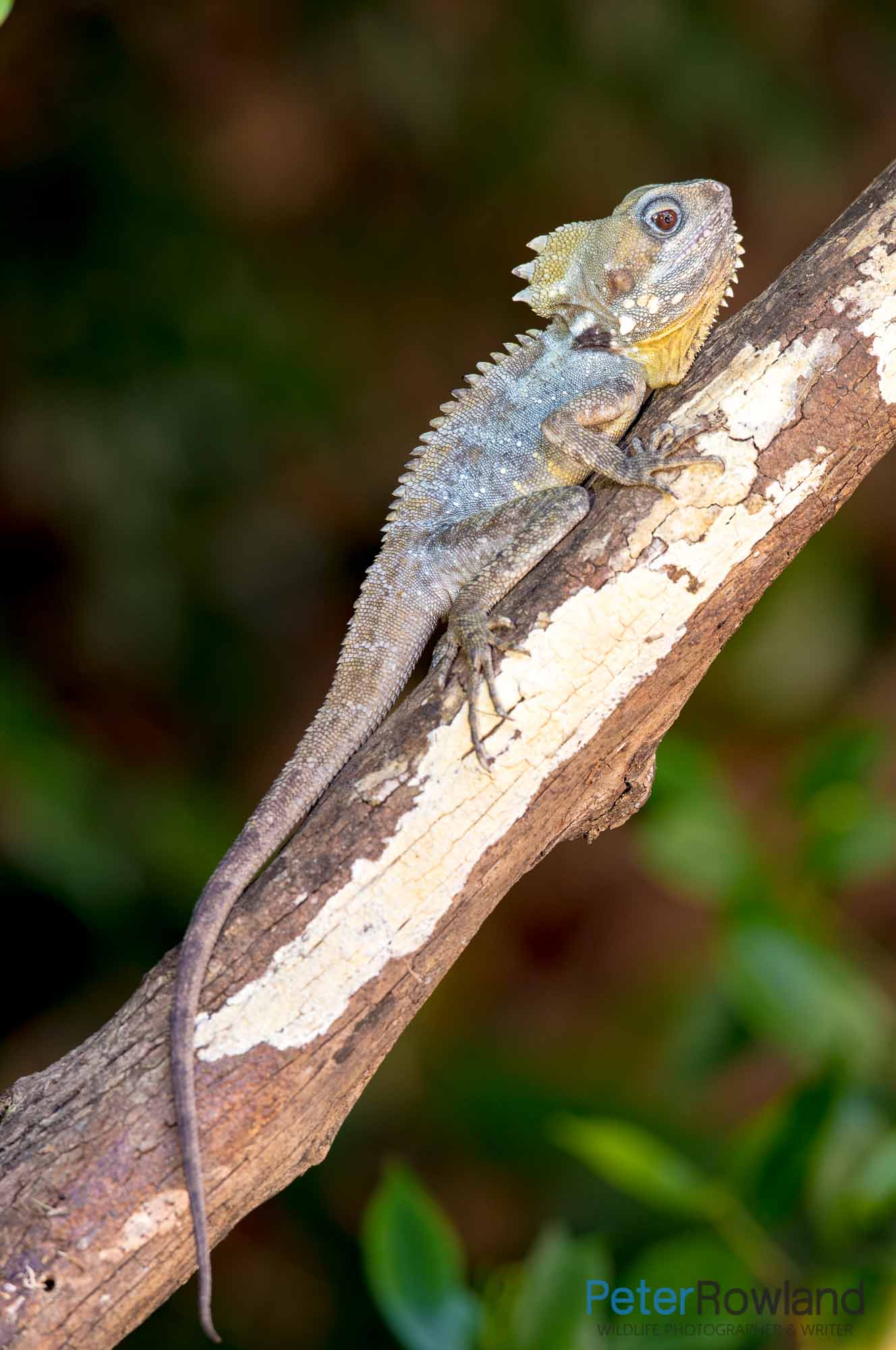
Boyd's Forest Dragon Peter Rowland Photographer & Writer
Boyd's Forest Dragon is well-adapted to life in the trees, spending much of its time perched on branches and foliage. Its slender body and long tail provide excellent balance and agility for navigating the forest canopy.

The Boyd's Forest Dragon is a Rainforest dwelling Lizard of North Queensland, Australia
Boyds Rainforest Dragons Photos, Goannas Photos, Lizards Photos, Reptiles Photos, Water Monitors Photos. The Australian Explorer photo gallery has been put together over a number of years and features some of our favourite photographs.

Boyd's forest dragon (Lophosaurus boydii) Location Mount … Flickr
Boyd's Forest Dragon. This species was formerly placed in the genus Hypsilurus . Lake Barrine, Atherton Tableland, Queensland, Australia — February 9, 2003. These striking lizards are poster boys for the Queensland wet tropics. I mean that literally; we saw many rainforest posters featuring everyone's favorite forest dragon.

So much SCIENCE!, rhamphotheca Boyd’s Forest Dragon (Hypsilurus... Reptiles and amphibians
Description. Boyd's Forest Dragons are generally brown or grey above, with some individuals having a green flush. The body is laterally compressed. They have very enlarged cheek scales, a prominent nuchal crest, and a yellow dewlap under the chin that is edged with enlarged spines. The males are larger than females and have larger, blockier heads.